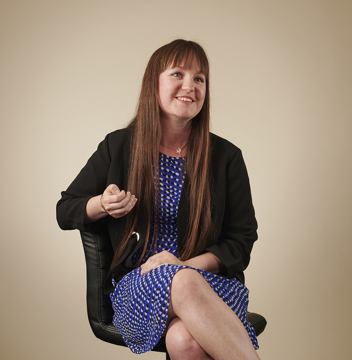September saw national will-writing charity Will Aid publish their 2024 poll, which disclosed that 56% of adults in the UK do not have a will, with a further 11% having an outdated will which doesn’t reflect their current circumstances or wishes.
In Scotland alone, there is a massive 69% of adults without a will.
These statistics show that there are some common misconceptions when it comes to estate planning, and perhaps some inaccuracies in assumption as to where your estate will go after you’re gone. We want to clear this up, and put these worries and concerns to rest.
Costs
21% of adults polled had concerns around the costs of instructing a solicitor. This is a legitimate concern, and we appreciate that fees will be in incurred in the process, which may appear as an unnecessary burden.
In reality, expensing these now will ultimately save your estate, or family members’ in the long run, as there are substantial additional fees incurred in winding up an estate without a will. For example, not having a will means that you have not appointed an executor, which in turn requires appointment via the court. Likewise, not having designated beneficiaries may require tracing a family tree to identify individuals who are entitled to benefit from your estate under law. These additional expenses incurred therefore can cost more than a simple will.
Uncomfortable conversations
16% of respondents felt uncomfortable talking about death. We understand that this is a genuine apprehension and can be an awkward conversation with loved ones, and is therefore often swept under the carpet as a result. However, the benefits and value of discussing this now means that your money, property and possessions will be going exactly where you want them to.
When someone dies without a will (known as dying ‘intestate’), there are specific rules under the laws of succession in Scotland, which provide a structure in order to deal with an estate. This means that your assets are distributed in a particular order of priorities.
This framework can therefore have unintended consequences and may mean that certain family members or friends won’t stand to inherit - for example, unmarried partners or blended families. This generation is undoubtedly seeing less marriages, and the consequences of having an unmarried partner mean that they will not be automatically entitled to any part of your inheritance. Although we are seeing updates to the law, the current legislation is 60 years old, and certainly doesn’t reflect the modern family.
On the flip side, siblings, parents or other family members that you may not be in contact with or have damaged relationships with may stand to inherit, over partners, friends or other family members who may be lower down (or not included at all) on the list of inheritance. Not to mention any valuable or sentimental items that you may want to go to specific beneficiaries, such as your jewellery collection to your daughter or your vintage car to your grandson.
Time and complexities
The survey found that 18.5% of people said the reason for not creating a will is due to never finding the time, and 16% put their lack of will down to concerns with the process being too complex. We understand that working lives are busy and complicated, and that equally spills into family life too. Prioritise your inheritance in the same way you would prioritise an important meeting or task at work.
Putting the time into it now will make it an easier transition for your family members and beneficiaries at an already difficult time - and at a time where they are most vulnerable and least prepared to deal with it. Dying intestate will experience much longer delays for your family in winding up your estate in comparison to having your wishes and assets properly documented and dealt with.
The process is often a lot more straightforward than anticipated. We will smoothy draft your will after meeting with you, and eliminate any interpretation issues, confusion or conflict to ensure your intentions are documented exactly how you planned.
Conclusions
Succession planning starts with instructing the appropriate legal advice to ensure that your wishes are correctly recorded. At Burness Paull, we understand that it can be a daunting and uncomfortable prospect, but we strive to ensure you leave with peace of mind knowing your estate is being handled within your professionally prepared will.
We can’t predict what lies around the corner, but we appreciate the value of taking control in order to protect what’s important. We would recommend considering preparing a will regardless of the size of your estate, or what you anticipate to leave behind.
If you are thinking of making or updating your will, please get in touch with our expert Private Client team who would be happy to assist in your estate planning.
Written by
Related News, Insights & Events
Error.
No results.

Budget 2025: Individuals & Families
27/11/2025
The hotly anticipated Budget was finally announced yesterday, after much speculation and media noise. We've summarised a few key announcements which are important for individuals and families.

Taking control of your digital assets: how the Digital Assets (Scotland) Bill might impact you and your business
03/11/2025
The Digital Assets (Scotland) Bill (the “Bill”) proposes to establish a foundation for the treatment of digital assets in Scotland.

Inheritance Tax planning for rural businesses: where are we now?
15/09/2025
With speculation mounting regarding the forthcoming 2025 Autumn Budget, it’s worth revisiting the huge impact of last year’s Budget on the rural sector.
{name}
{properties.pageSummary}
{properties.headline}
{properties.pageDate|date:dd/MM/yyyy}
{properties.shortDescription}



